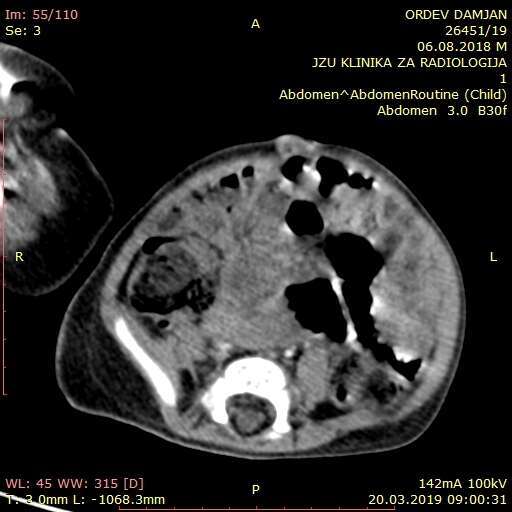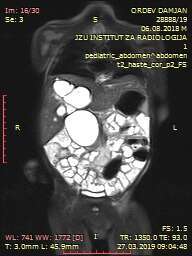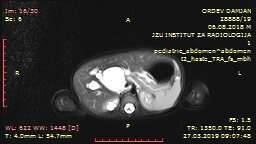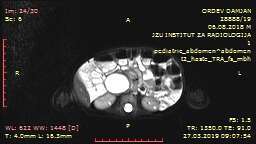
Is This Caroli Disease?
2Department of Pediatrics, University Goce Delcev Shtip, Macedonia
Introduction: Caroli disease is rare congenital disorder of the intrahepatic bile ducts. It is characterized by dilatation of intrahepatic biliary tree and with renal cysts. Caroli disease is inherited autosomal dominant.
Aim: To present a case of seven months old infant with icterus of the skin and sclera.
Material and methods: Seven month old infant with gray-yellow skin color and fatigue for a month. Positive family history of policystic renal disease and carcionama of the liver. At admittion afebrile, pale, yellow sclera. Abdomen above torax. On palpation with hepatosplenomegaly. From examinations: WBC -17,07 CRP= 12.9mg/l. Tot.Bill= 141,5umol/l, Dir. Bill= 93.3umol/l, AST= 142U/L, ALT= 143U/L, ALKP= 790 U/L, LDH= 415U/L, CK=330U/L, CA-19-9 =399,7 U/ml. Abdominal ultrasound showed more cystic formations in the liver that are connected in parts and a larger cyst in the hepatoiduodenal ligament and the liver hilus. The finding goes in addition to Caroli disease. CT scan of abdomen and MRI cholangiopancreatography showed hepatomegaly, cystic and sacular dilated intra and extrahepatic bile pathways. Both kidneys are without signs of obstruction, but with cortical cysts, right in the upper parts and left in the interpolar region with diameter 15 mm. Mild intestinal distension.

CT scan of abdomen



MRI cholangiopancreatography
Results: Child is outpatient followed by a Pediatric gastroenterohepatologyst and Pediatric surgeon. Child recives Ursodeoxycholic acid and the last results with withdrawl of liver enzymes and bilirubin. HLA typisation is planed for liver transplatation in the future.
Conclusion: Although this disease is rare, hyperbilirubinaemia of direct type and a positive familial history of polycystic kidney should lead us to think of Caroli disease.
Powered by Eventact EMS